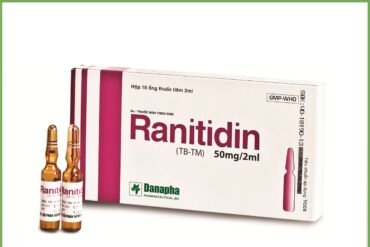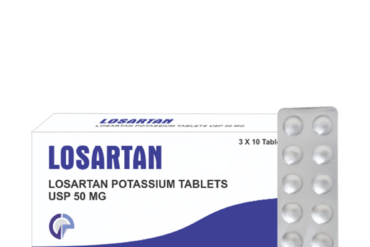Ranitidine (Zantac): A Closer Look at Antacids

Table of Contents
- Overview of Ranitidine as an Antacid
- Potential Side Effects of Ranitidine
- Comparing Ranitidine to Other Antacids
- Safety and Long
- Term Use of Ranitidine
- Alternative Antacid Options to Ranitidine
Overview of Ranitidine as an Antacid
Ranitidine, commonly known by its brand name Zantac, is an antacid that is widely used for the treatment of various gastrointestinal conditions. This medication belongs to a class of drugs called H2 blockers, which work by reducing the production of stomach acid.
Ranitidine is primarily prescribed to alleviate symptoms of heartburn, acid indigestion, and gastroesophageal reflux disease (GERD). It provides relief by decreasing the amount of acid produced in the stomach, thereby reducing the irritation and discomfort caused by excessive acid reflux.
When taken as directed, ranitidine can effectively relieve symptoms of acidity, including chest pain, a burning sensation in the throat, regurgitation of acid, and difficulty swallowing. It is available in both over-the-counter and prescription forms, depending on the strength and dosage required for your specific condition.
Unlike other antacids, ranitidine may not provide immediate relief as it works to inhibit the production of stomach acid over time. It typically takes around one to three hours for the medication to start working, but its effects can last for up to twelve hours, providing extended relief from acidity.
It is important to note that ranitidine is not intended for long-term use without medical supervision. Chronic or excessive use of this antacid can lead to certain side effects, including headaches, dizziness, diarrhea, and in rare cases, liver problems.
As with any medication, it is crucial to follow the recommended dosage and consult a healthcare professional if you have any questions or concerns. Your doctor will evaluate your symptoms and medical history to determine the appropriate dosage and duration of treatment with ranitidine.
In summary, ranitidine (Zantac) is a popular antacid that belongs to the class of H2 blockers. It is effective in reducing stomach acid production and can provide relief from symptoms of heartburn, acid indigestion, and GERD. However, it should be used cautiously and as directed to avoid potential side effects. Always consult with your doctor for proper guidance and to discuss any concerns you may have.
- Ranitidine is an antacid medication used to treat heartburn, acid indigestion, and GERD.
- It works by reducing the production of stomach acid.
- Relief from symptoms may take one to three hours to occur.
- Ranitidine is available in both over-the-counter and prescription forms.
- Long-term use should be done under medical supervision.
- Consult your doctor for proper dosage and guidance.
Potential Side Effects of Ranitidine
Ranitidine, commonly known by the brand name Zantac, is a medication used to reduce stomach acid production and relieve symptoms of acid reflux, gastroesophageal reflux disease (GERD), and stomach ulcers. While it is generally considered safe and effective, like any medication, Ranitidine may have potential side effects that need to be considered. It is always important to discuss any concerns or questions with a healthcare provider before starting or stopping any medication.
Here are some potential side effects of Ranitidine:
- Headache: Some individuals may experience mild to moderate headaches as a side effect of taking Ranitidine. If headaches persist or become severe, it is advisable to consult a healthcare professional.
- Dizziness or lightheadedness: Ranitidine can occasionally cause dizziness or feelings of lightheadedness. It is important to avoid driving or operating machinery if these symptoms occur.
- Diarrhea or constipation: Ranitidine may affect the normal functioning of the digestive system, leading to either diarrhea or constipation. Maintaining a well-balanced diet and staying hydrated can help alleviate these symptoms.
- Nausea or vomiting: Some individuals may experience these gastrointestinal disturbances while taking Ranitidine. If persistent, it is recommended to seek medical advice.
- Allergic reactions: Although rare, some people may experience an allergic reaction to Ranitidine. Symptoms may include rash, itching, swelling, severe dizziness, or difficulty breathing. If any of these symptoms occur, emergency medical attention should be sought immediately.
- Changes in liver function: In rare cases, Ranitidine may lead to abnormal liver function tests. Regular monitoring of liver function is advisable, especially for individuals with pre-existing liver conditions.
It is important to note that not everyone experiences these side effects, and many individuals taking Ranitidine do not experience any adverse reactions. Additionally, the severity and frequency of these side effects can vary from person to person. If side effects become bothersome, persistent, or worsen over time, it is essential to consult a healthcare professional for further evaluation and guidance.
In conclusion, while Ranitidine (Zantac) is generally well-tolerated, it may cause side effects in some individuals. Understanding and being aware of possible side effects can help individuals make informed decisions about their healthcare. Always consult a healthcare provider if you have any concerns or questions about taking Ranitidine or any other medications.
Comparing Ranitidine to Other Antacids
Ranitidine, commonly known as Zantac, is a popular antacid medication that is primarily used to reduce stomach acid production. However, there are several other antacids available on the market that serve the same purpose. Let’s take a closer look at how ranitidine compares to other antacids.
1. Ranitidine vs. Proton Pump Inhibitors (PPIs): PPIs like omeprazole (Prilosec) and esomeprazole (Nexium) are also used to reduce stomach acid production. However, unlike ranitidine, PPIs are more potent and provide longer-lasting relief. They are often recommended for more severe cases of acid reflux or ulcers.
2. Ranitidine vs. Calcium-Based Antacids: Antacids like Tums, Rolaids, and Maalox contain calcium carbonate, which works by neutralizing stomach acid. Ranitidine, on the other hand, reduces acid production but does not provide immediate relief. Calcium-based antacids offer quick relief but have a shorter duration of action compared to ranitidine.
3. Ranitidine vs. H2 Blockers: H2 blockers, such as famotidine (Pepcid) and cimetidine (Tagamet), work similarly to ranitidine by decreasing stomach acid production. However, ranitidine is believed to be more effective and longer-lasting compared to other H2 blockers.
4. Ranitidine vs. Antacids with Aluminum or Magnesium: Some antacids contain aluminum or magnesium compounds, such as Mylanta and Gaviscon. These antacids work by neutralizing stomach acid and providing quick relief. However, they can cause constipation or diarrhea as side effects, while ranitidine usually has fewer gastrointestinal side effects.
In conclusion, ranitidine (Zantac) is a popular antacid medication that effectively reduces stomach acid production. However, it is important to note that other antacids serve different purposes and may be more suitable for certain conditions or symptoms. It is best to consult with a healthcare professional to determine the most appropriate antacid for your specific needs.
Safety and Long-Term Use of Ranitidine (Zantac): A Closer Look at Antacids
Ranitidine, popularly known as Zantac, is a medication that belongs to a class of drugs called H2 blockers. It works by reducing the production of stomach acid, making it effective in treating conditions like heartburn, GERD (gastroesophageal reflux disease), and ulcers. However, recent concerns have been raised regarding the safety of long-term use of ranitidine. Let’s take a closer look at the potential risks and benefits associated with this medication.
Safety: Ranitidine has been widely used for over three decades and has generally been regarded as safe with only minor side effects. The most common adverse effects reported include headache, dizziness, diarrhea, and constipation. These symptoms are usually mild and subside as the body adjusts to the medication. However, it is crucial to consult a healthcare professional if any serious side effects occur, such as severe abdominal pain, yellowing of the skin or eyes, or unexplained weight loss.
Recently, concerns over ranitidine have emerged due to the presence of a potential carcinogen called N-nitrosodimethylamine (NDMA) in some ranitidine products. NDMA is classified as a probable human carcinogen by the International Agency for Research on Cancer (IARC). While the levels of NDMA found in ranitidine are generally low, the United States Food and Drug Administration (FDA) has advised caution and recommended recalls of certain ranitidine products.
Long-Term Use: Ranitidine is intended for short-term use ranging from a few days to a few weeks. However, some individuals may require long-term use to manage chronic conditions like GERD. It is important to note that prolonged use of ranitidine can interfere with the absorption of certain vitamins and minerals, including calcium, iron, and vitamin B12. This may lead to deficiencies over time, which can have various health implications.
Therefore, if long-term use is necessary, healthcare professionals may recommend monitoring vitamin and mineral levels and potentially adding suitable supplements to the patient’s regimen. Additionally, periodic reassessment of the need for continued use of ranitidine is essential to ensure that the benefits outweigh the potential risks.
Conclusion: Ranitidine (Zantac) is an effective medication for relieving acid-related conditions, but recent concerns regarding the presence of NDMA have prompted regulatory actions. While short-term use is generally safe, long-term use may carry certain risks, such as vitamin and mineral deficiencies. It is crucial to consult a healthcare professional for guidance on the appropriate use, duration, and potential alternatives to ranitidine based on individual needs. Patient safety and well-being should always remain the top priority.
- Ranitidine (Zantac) is an H2 blocker and reduces stomach acid production.
- Common side effects include headache, dizziness, diarrhea, and constipation.
- Ranitidine products have been found to contain a potential carcinogen called NDMA.
- Long-term use of ranitidine can lead to vitamin and mineral deficiencies.
- Consult a healthcare professional for guidance on appropriate use and potential alternatives.
Term Use of Ranitidine
Ranitidine, commonly known by its brand name Zantac, is a popular antacid used to relieve symptoms of heartburn, acid reflux, and gastrointestinal ulcers. With its ability to reduce stomach acid production, Ranitidine provides relief to individuals suffering from these conditions. However, it is important to understand the appropriate use and potential risks associated with its long-term use.
When using Ranitidine for an extended period, it is crucial to consult a healthcare professional who can evaluate your condition and prescribe the optimal dosage. This will help ensure you are taking the appropriate amount that effectively manages your symptoms without exceeding what is necessary.
It is advised to strictly follow the prescribed dosage and duration of treatment. Overusing Ranitidine or taking it for a longer period than recommended may have adverse effects on your health. Continuous use of Ranitidine beyond the prescribed duration might hinder the absorption of certain vitamins and minerals, leading to potential deficiencies. Therefore, it is essential to use this medication judiciously and only as directed by your healthcare provider.
Here are some key points to remember about the term use of Ranitidine:
- Long-term use of Ranitidine should be done under medical supervision to avoid potential complications.
- Overusing or extending the duration of treatment beyond prescribed limits may lead to nutrient deficiencies.
- Ranitidine should not be used as a preventive measure or for immediate relief of occasional heartburn or indigestion.
- Consult your doctor if you experience any persistent symptoms or if your condition worsens despite the use of Ranitidine.
- Regular health check-ups are important for individuals on long-term Ranitidine treatment to ensure its continued suitability and effectiveness.
- Avoid self-medication and inform your healthcare provider about any other medications, supplements, or herbal remedies you may be taking.
By using Ranitidine responsibly and as prescribed, individuals can effectively manage their gastrointestinal conditions and minimize the risks associated with its long-term use. However, it is always important to consult healthcare professionals for personalized advice and guidance regarding the term use of this medication.
Alternative Antacid Options to Ranitidine
Ranitidine, commonly known as Zantac, has historically been a widely used antacid medication. However, recent concerns regarding potential impurities have led to the withdrawal of many ranitidine products from the market. If you are in search of alternative antacid options to replace ranitidine, consider the following:
- Proton Pump Inhibitors (PPIs): PPIs are a popular class of medications that reduce stomach acid production. Common examples include omeprazole, esomeprazole, and lansoprazole. PPIs are highly effective at treating conditions such as gastroesophageal reflux disease (GERD) and frequent heartburn. They are available over the counter or by prescription.
- H2 Blockers: Similar to ranitidine, H2 blockers such as famotidine and cimetidine work by reducing the production of stomach acid. They are available both over the counter and by prescription. While they may not be as potent as PPIs, they can provide relief for mild to moderate cases of heartburn.
- Antacids: Antacids are over-the-counter medications that work by neutralizing stomach acid. Examples include Tums, Rolaids, and Maalox. Antacids provide quick but temporary relief from heartburn. They are often used as an adjunct therapy alongside other acid-reducing medications.
- Dietary and Lifestyle Modifications: In addition to medications, certain dietary and lifestyle changes can help alleviate acid reflux and heartburn. These include avoiding trigger foods and beverages (e.g., spicy foods, citrus fruits, coffee), eating smaller, more frequent meals, maintaining a healthy weight, and avoiding lying down shortly after eating.
When considering alternative antacid options to ranitidine, it is crucial to consult with a healthcare professional or pharmacist. They can evaluate your specific symptoms and medical history to recommend the most appropriate medication or treatment plan for you.


























